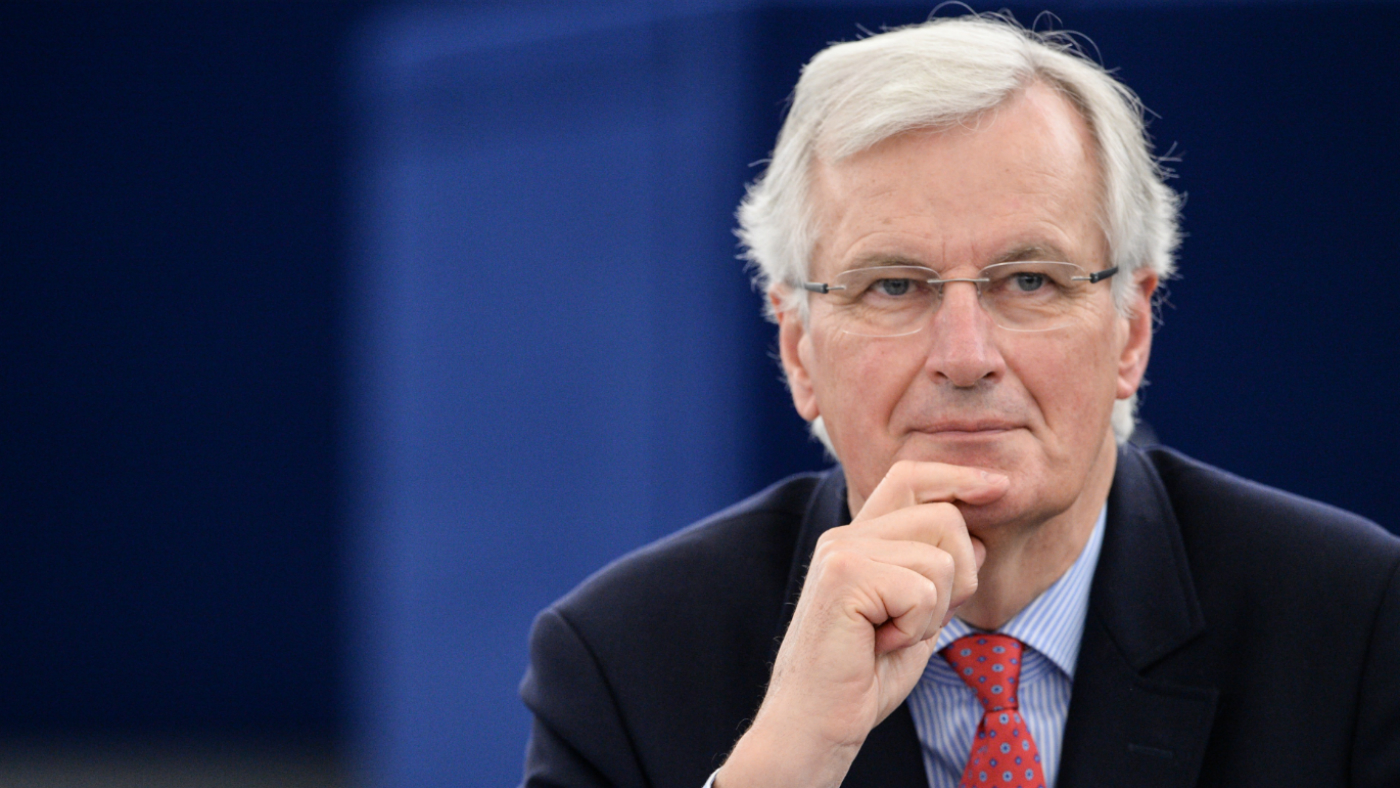Brexit talks will decide UK fishing rights, EU says
Michel Barnier derides Michael Gove's plan to 'take back control' of the seas

A free daily email with the biggest news stories of the day – and the best features from TheWeek.com
You are now subscribed
Your newsletter sign-up was successful
Questions have been raised about the UK's withdrawal from the London fisheries convention, including whether EU law supersedes UK policy and whether Britain has the capacity to police its own waters.
Environment Secretary Michael Gove announced on Sunday that the UK was "taking back control" of the fishing territory between six and 12 nautical miles from UK coastline, a decision he hailed as an "important moment" for the UK fisheries policy.
However, Michel Barnier, the European Union's chief Brexit negotiator, downplayed Gove's announcement and said EU law supersedes the UK's position.
The Week
Escape your echo chamber. Get the facts behind the news, plus analysis from multiple perspectives.

Sign up for The Week's Free Newsletters
From our morning news briefing to a weekly Good News Newsletter, get the best of The Week delivered directly to your inbox.
From our morning news briefing to a weekly Good News Newsletter, get the best of The Week delivered directly to your inbox.
Others questioned whether the UK has the naval capability to police its own territory. Admiral Lord Alan West, a retired senior officer of the Royal Navy, described the UK plan as "amazingly complacent".
He also warned the country risked becoming a "laughing stock" if it didn't increase the number of vessels needed to police the territory.
The London fisheries convention, signed in 1964, allows vessels from France, Belgium, Germany, Ireland and the Netherlands to fish in waters within six to 12 miles from the UK coast.
The EU Common Fisheries Policy allows all European countries access between 12 and 200 nautical miles of the UK, as well as setting quotas, and some argue it may take precedence over UK law.
A free daily email with the biggest news stories of the day – and the best features from TheWeek.com
-
 Political cartoons for February 18
Political cartoons for February 18Cartoons Wednesday’s political cartoons include the DOW, human replacement, and more
-
 The best music tours to book in 2026
The best music tours to book in 2026The Week Recommends Must-see live shows to catch this year from Lily Allen to Florence + The Machine
-
 Gisèle Pelicot’s ‘extraordinarily courageous’ memoir is a ‘compelling’ read
Gisèle Pelicot’s ‘extraordinarily courageous’ memoir is a ‘compelling’ readIn the Spotlight A Hymn to Life is a ‘riveting’ account of Pelicot’s ordeal and a ‘rousing feminist manifesto’
-
 Epstein files topple law CEO, roil UK government
Epstein files topple law CEO, roil UK governmentSpeed Read Peter Mandelson, Britain’s former ambassador to the US, is caught up in the scandal
-
 Iran and US prepare to meet after skirmishes
Iran and US prepare to meet after skirmishesSpeed Read The incident comes amid heightened tensions in the Middle East
-
 Israel retrieves final hostage’s body from Gaza
Israel retrieves final hostage’s body from GazaSpeed Read The 24-year-old police officer was killed during the initial Hamas attack
-
 China’s Xi targets top general in growing purge
China’s Xi targets top general in growing purgeSpeed Read Zhang Youxia is being investigated over ‘grave violations’ of the law
-
 Panama and Canada are negotiating over a crucial copper mine
Panama and Canada are negotiating over a crucial copper mineIn the Spotlight Panama is set to make a final decision on the mine this summer
-
 Why Greenland’s natural resources are nearly impossible to mine
Why Greenland’s natural resources are nearly impossible to mineThe Explainer The country’s natural landscape makes the task extremely difficult
-
 Iran cuts internet as protests escalate
Iran cuts internet as protests escalateSpeed Reada Government buildings across the country have been set on fire
-
 US nabs ‘shadow’ tanker claimed by Russia
US nabs ‘shadow’ tanker claimed by RussiaSpeed Read The ship was one of two vessels seized by the US military